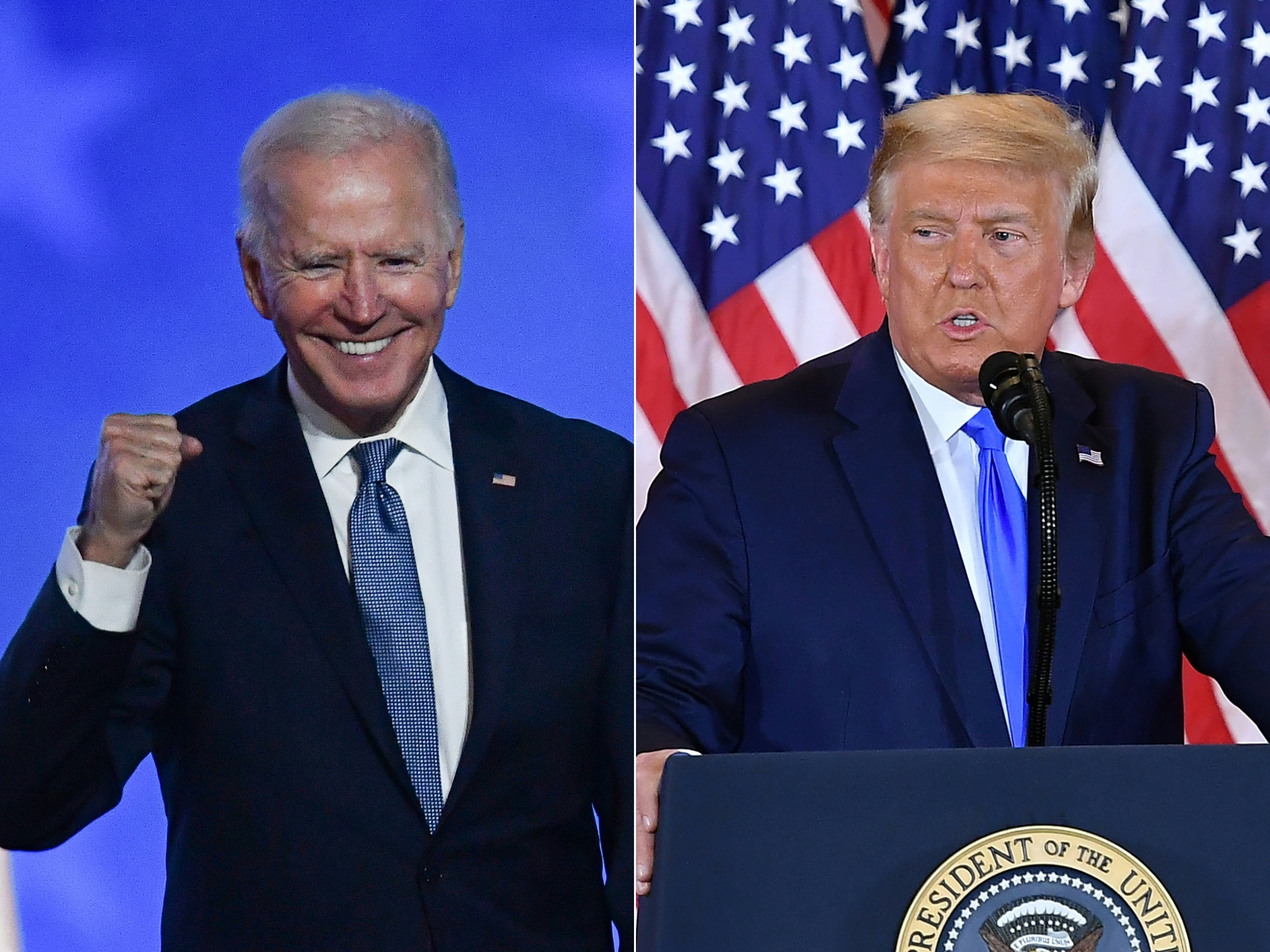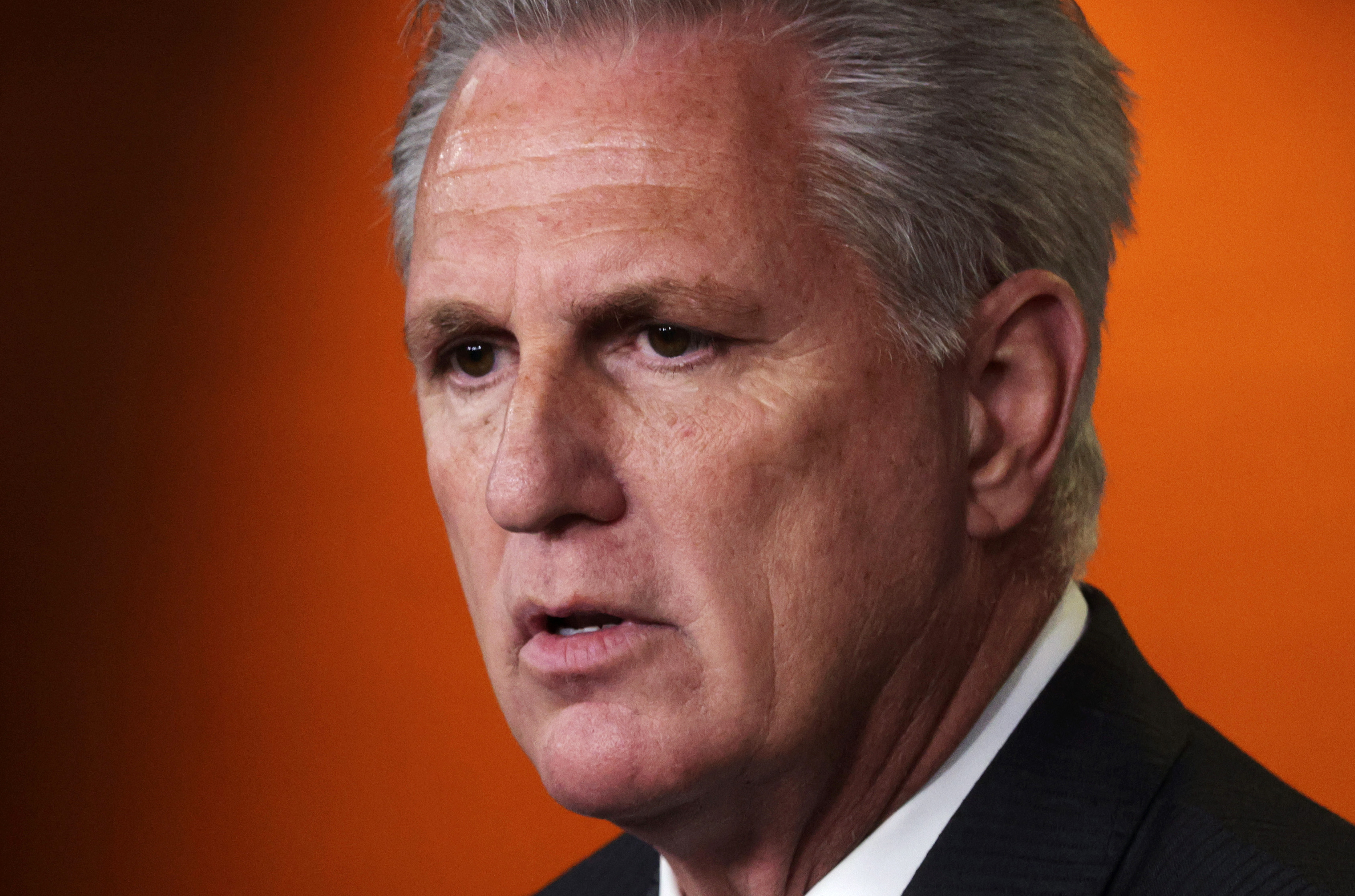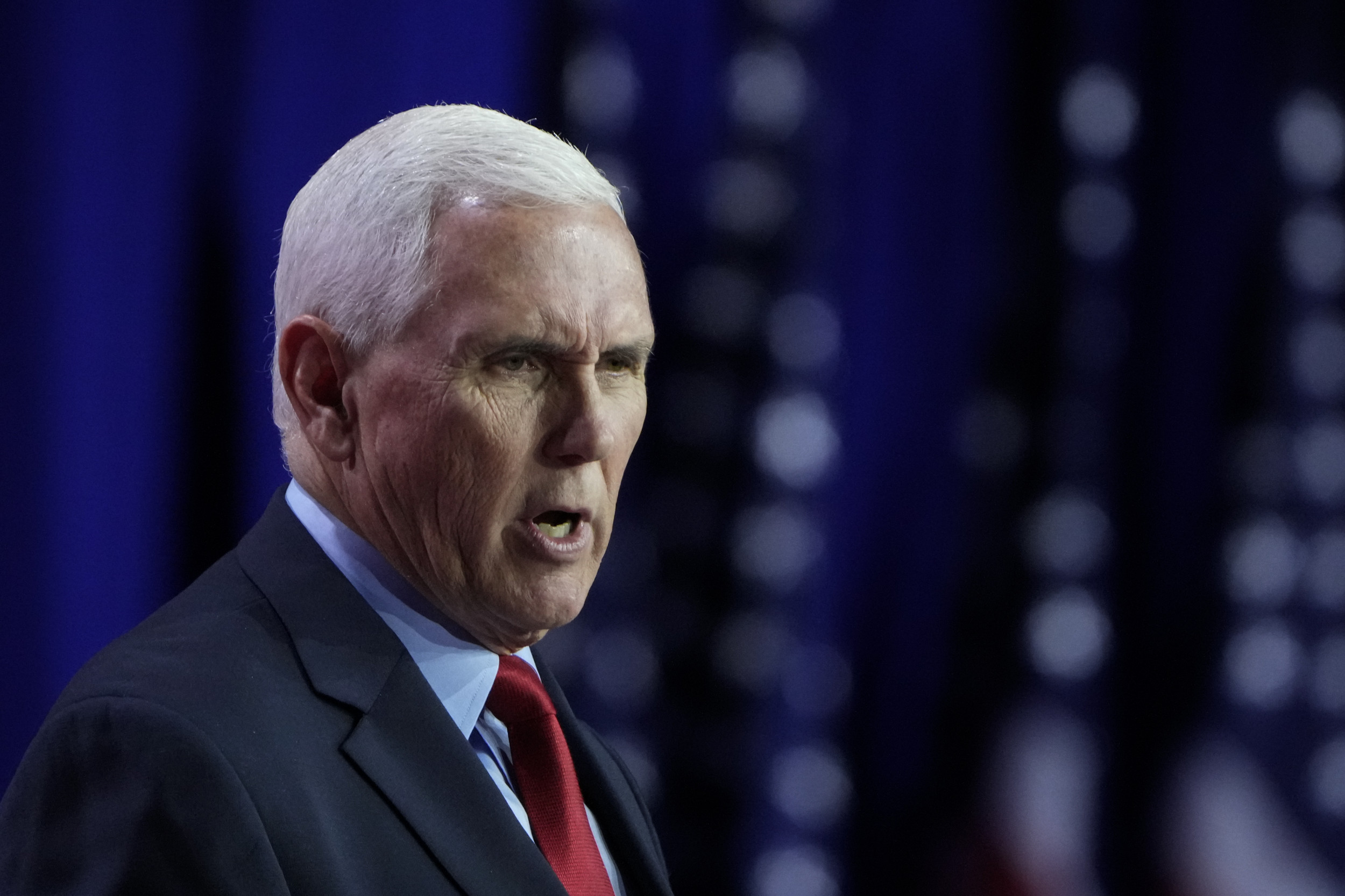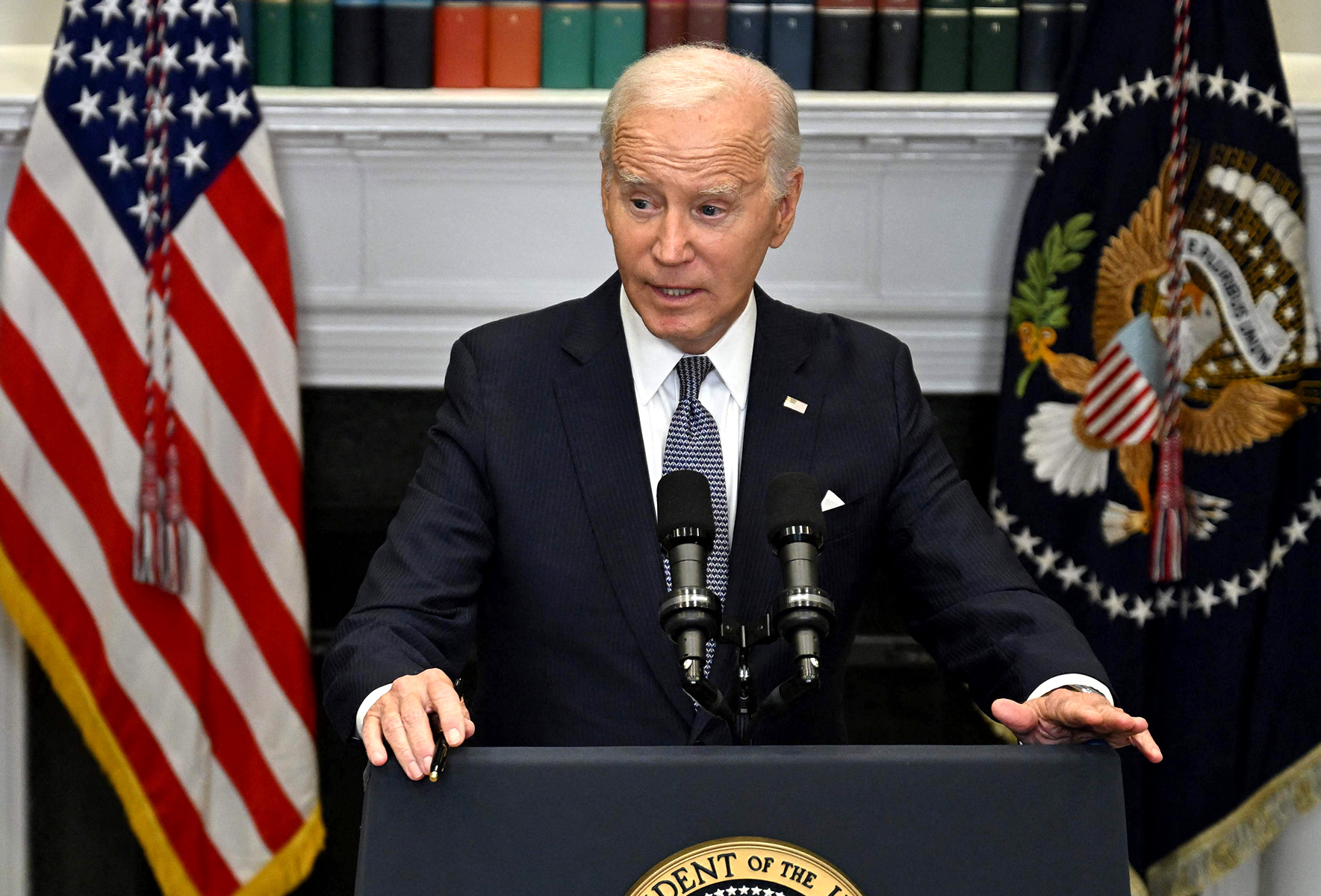In the wake of a brazen uprising within his own borders, Russian President Vladimir Putin has set out to neutralize future threats to his power by reining in the Wagner Group in the midst of the ongoing war in Ukraine and empowering a new security apparatus.
"What we are witnessing is tantamount to the dissolution of the Wagner Group in Ukraine," George Barros, a Russia analyst at the Institute for the Study of War, told Newsweek.
The initiative comes as Russia continues to reel from the events of June 24. After accusing the Russian military's top brass of ordering airstrikes on his positions over his open criticism of the handling of the Ukraine conflict, Wagner Group chief Yevgeny Prigozhin led his forces that day to occupy a command center in the southern Russian city of Rostov-on-Don and succeeded in sending an armored column to within 200 kilometers of Moscow. Speculation was rampant that the brewing armed mutiny would soon lead to the end of Putin's reign in the Kremlin.
Shortly after 10 p.m., however, Kremlin spokesperson Dmitry Peskov announced that Belarusian President Alexander Lukashenko had brokered a deal that same day between the warring factions. Prigozhin's forces subsequently withdrew.
Nearly two weeks on, despite ample remaining unknowns, Putin's government has taken at least one very visible, concrete step aimed at scaring off any copycat performance of Wagner's armed mutiny.
"Rosgvardiya, the Russian National Guard group that reports directly to the president, was already a paramilitary organization," Barros explained. "After June 24, it was announced that they will now be receiving unspecified forms of heavy weaponry, meaning that, as a result of Prigozhin's march, we could soon see Vladimir Putin's domestic protection service driving around in main battle tanks."
"The Kremlin is doing whatever it can to prevent this kind of threat from repeating itself," he added.
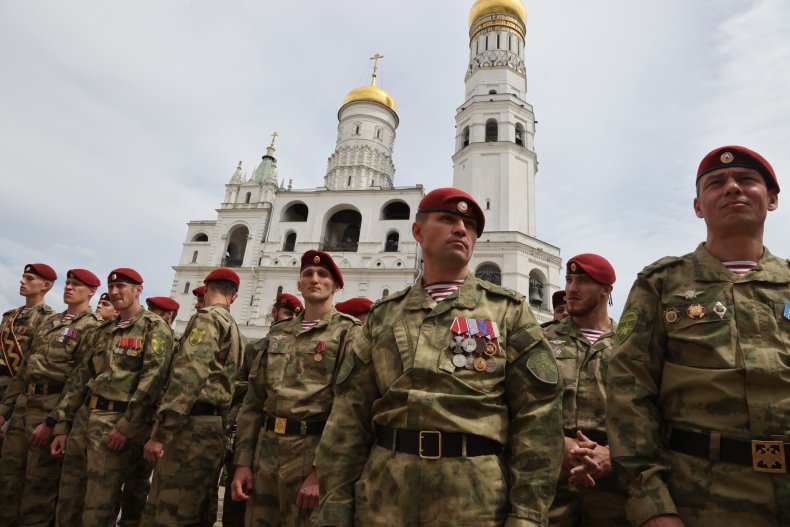
While the dust continues to settle from the aborted Wagner Group insurrection, the consequences appear to be worse for Prigozhin and his nominally private military company than they are for the Russian ruling elite.
As part of the deal, which was reached thanks to what the Kremlin officially claims was Lukashenko's diplomatic initiative, former Wagner Group fighters are being given the opportunity to choose between three options: signing contracts of service with the Russian Ministry of Defense or other state organs, returning home "to their kith and kin," or decamping to Belarus. Prigozhin has reportedly already arrived in Belarus, where facilities capable of housing up to 8,000 fighters are said to be under construction.
Despite speculation in some circles that the mercenaries' transfer to Belarusian territory might herald the possibility of renewed Russian assaults in the direction of Kyiv, military analysts including Barros see the overall scheme as an attempt to salvage what little remains of the Russian military's potential for conducting offensive operations.
"The fact that these Wagner fighters are being given the chance to return to the fold after participating in a treasonous insurrection is an indication of just how starved the Russian Ministry of Defense is for effective combat power," Barros said.
But rather than truly maximizing combat capacity by allowing Wagner units to remain intact under Ministry of Defense command, some of Russia's most assault-capable groups are likely to be broken up due to political concerns.
"The most probable Russian blueprint for how they're going to absorb these guys is to atomize them from their former commanders and comrades in arms," Barros explained. "They'll be reassigned to separate units so that the leadership in Moscow no longer has to worry about any repeat insurrectionist tendencies from Wagner-majority elements."
"This is another example of the Kremlin prioritizing regime stability over combat effectiveness," he added.
However, Wagner's area of operations encompasses far more than just Ukraine, and it remains unclear what will happen with fighters currently stationed in far flung locales from Venezuela to Syria.
"In terms of Ukraine, I think Wagner as we presently know it may be on its last legs," Alec Bertina, an analyst specializing in Russian militant groups, told Newsweek. "But many of Wagner's most capable guys haven't been sent into the meatgrinder in Ukraine. They've been in Africa this whole time."
Although the group is nominally a "private" military company, it has always depended on support from the Russian state. Putin acknowledged in the days after the attempted rebellion that his administration had devoted up to $1 billion to Prigozhin's network over the past year. Whether or not its fighters far from home will continue to receive such support represents yet another unknown.

"The Russian Ministry of Defense provided Wagner with significant levels of equipment," Bertina explained. "Prigozhin wasn't buying T-90 tanks or fighter jets with his own money, and in the case of the planes, the pilots were most likely coming on loan from the Russian Air Force under a special agreement."
"Unless some sort of new arrangement is made, Wagner forces in Africa could now be operating with less air support, and they'll possibly be operating with less intelligence support from the Russian military too," he added.
Still, even if the Russian mercenaries find themselves cut off both from the government in Moscow and from the patronage of Prigozhin, they may yet prove capable of operating in a truly independent fashion, even if that means scaling back their activities.
"Wagner in Africa absorbs a lot of resources, but it is also a revenue generating operation," Bertina said. "They'll do anything from resource extraction to cigarette smuggling to arms trafficking to timber trading to money laundering. It's like an infection that spreads in local economies. It remains an organization that can partially sustain itself in certain theaters."
And the capacity of the Russian government to subdue these fighters abroad, which was limited to begin with, has been constrained further due to the resource demands of the Kremlin's war in Ukraine.
"What are you going to do, divert special forces units from the Ukrainian theater, or send Putin's Praetorian Guard from Moscow halfway around the world to arrest these guys in the Central African Republic?" Bertina asked rhetorically. "It's just not going to happen."
Still, the most consequential uncertainties regarding Prigozhin's uprising do not concern the African continent, but Russia itself. Less than two weeks after Wagner's abortive drive towards Moscow, much remains to be learned regarding what transpired on June 24 and what it may yet portend for the future stability of Putin's rule.
"We don't know who Prigozhin may have cooperated with, who may have truly benefited from the chaos he could have unleashed if he reached Moscow, or who is truly benefiting now from dismantling Prigozhin's interests in Russia and internationally," Samuel Bendett, an advisor at the Center for Naval Analyses told Newsweek.
"We don't know how far Prigozhin was going to go if his negotiations with Putin or Lukashenko were to break down, and we also don't know the full extent of support for his mutiny among rank-and-file Wagner fighters," he added. "Prigozhin talked about consulting with his officers before heading out to Rostov. What is happening now with these officers?"
